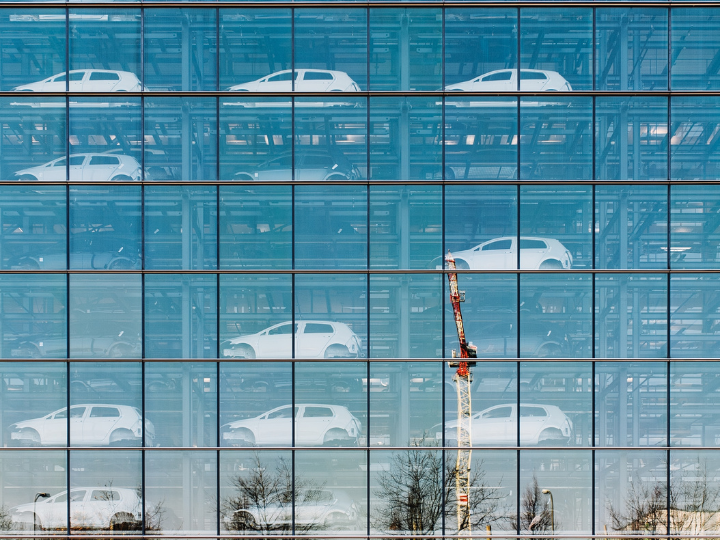by Frans Timmermans*
Most European car makers have already declared that they will go full electric by 2035, some of them sooner. The EU’s task is to get ready for this transformation.
When driving forward to regain your purpose, focus must hold the wheel or you will miss the road. This paraphrase of the Ghanese author Israelmore Ayivor perfectly describes today’s car industry in Europe.
There can be no doubt as to where our road is leading. As of 2035, all new cars in the European Union will be zero-emission.
It is a date that makes sense. With the European Union’s legal commitment to become climate neutral, nearly all cars on our roads will need to be zero emission by 2050.
Considering the average lifetime of cars, 2035 is the right date. Besides, most European car makers have already declared that they will go full electric by then, and many will do so much sooner. Daimler, the inventor of the combustion engine, will go full-electric by the end of this decade.
Europe has a proud history in car-making and deserves to move just as proudly into the future. I want our carmakers to continue making unbeatable, high-quality cars and remain world leaders.
But that world is not standing still.
Recently, the United States adopted a climate package that will give a massive boost to electric mobility. China will have launched 80 new electric models between last year and next year. Across Europe, more and more cities are restricting access to their centres to zero-emission vehicles only.
Millions of citizens work every day to build cars in Europe, and millions of families depend on their paychecks. They need an industry that builds on its past, not one that lives in it.
They need an industry that thrives in Europe and exports to the world. We need to send zero emissions European cars to other continents, not European jobs and economic opportunities. And we should not export polluting vehicles that will just shift emissions elsewhere.
This transformation has a deep impact on jobs, especially in components and fuels for combustion engines. But the answer isn’t to push solutions that are inconsistent with industry plans and global trends. Or to shove aside efforts to tackle air pollution and drastically reduce our dependence on fossil fuels.
Our answer should be to secure many more jobs in electrification, batteries, charging and software. With the right focus and instruments, we can. When I recently visited Skoda in Czechia, plant managers noted that the production of electric vehicles actually created more jobs.
Other factories are working to adapt combustion engine components for heat pump production. The biggest challenge isn’t to create new jobs; it is to train workers to evolve from one job to the other.
Continuing to produce combustion-engine cars for other countries is not the answer either. The transition to electric mobility may be slower in other parts of the world, but the electrification of entire economies is now becoming part and parcel of our international climate diplomacy.
I would rather see the European industry export clean cars and clean technologies, and work on developing off-grid charging options, so that we help accelerate the green transition elsewhere.
While the economic opportunities are there, industry cannot plan for a transformation if we sow seeds of doubt or second-guess the transformation itself. Leaving loopholes and suggesting backdoors do nothing to support our industry and its workers. We would lose our focus and slide off the road.
In 2026, we will review progress towards the 2035 zero-emission target. Review clauses are part of any European law. This review will be about how we reach the 2035 commitment, not if we want to reach it.
The phase-out date has been agreed by the European Parliament and 27 Member States. It’s the right date. And it has been welcomed by many in the car industry for the certainty and direction it provides.
The transformation for our European car industry will be formidable, there is no denying that. Our task now is to get ready.
That also means that consumers need to trust that electric cars are as easy and comfortable to use as petrol and diesel cars. More work is needed to roll out the charging infrastructure, to ensure that electric mobility is affordable and to develop a market in second, third and even fourth-hand cars.
The more carmakers can focus on bringing new electric models to the market, the faster technology can spread and the cheaper it gets as it grows to scale.
We need to ramp up sustainable battery production in Europe and secure other raw materials for electric mobility. Above all, we now have to support workers and the thousands of often smaller businesses in the automotive chain to have the skills to transition to the future with us.
If we keep looking in the rearview mirror, other continents will simply race past us. The support in America and Asia for electric mobility and all the supply chains behind it is now a given, and Europe is working on a comprehensive response to secure opportunities and jobs here on our continent.
European car makers are ready to lead. They can build cars that outcompete the American and Asian models.
So let’s work together to build a clean and affordable European car industry. For Europe and the world.
*the European Commission’s vice-president in charge of the Green Deal
**first published in: Euractiv.com




 By: N. Peter Kramer
By: N. Peter Kramer
